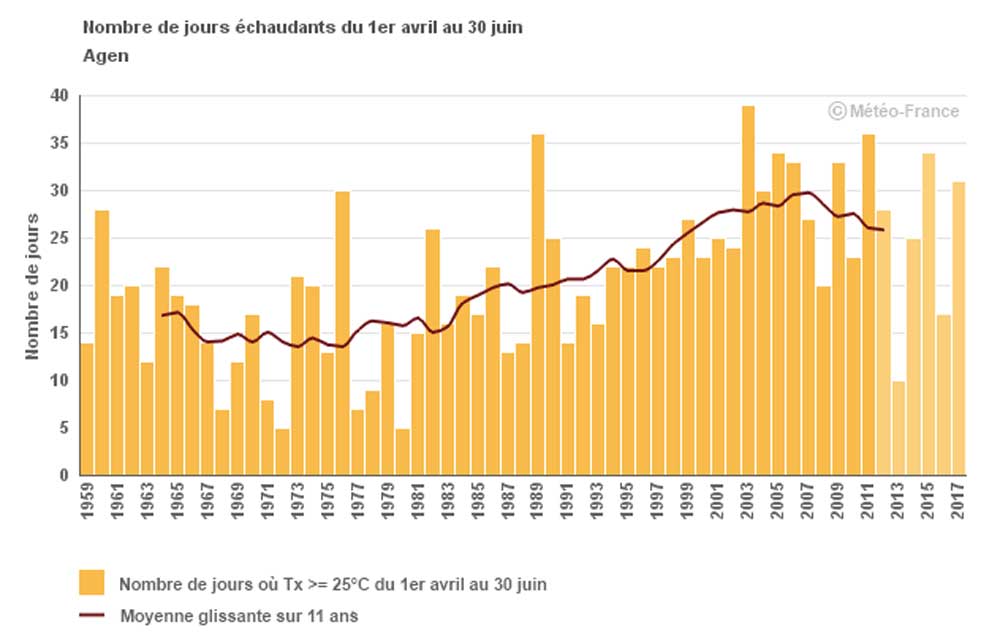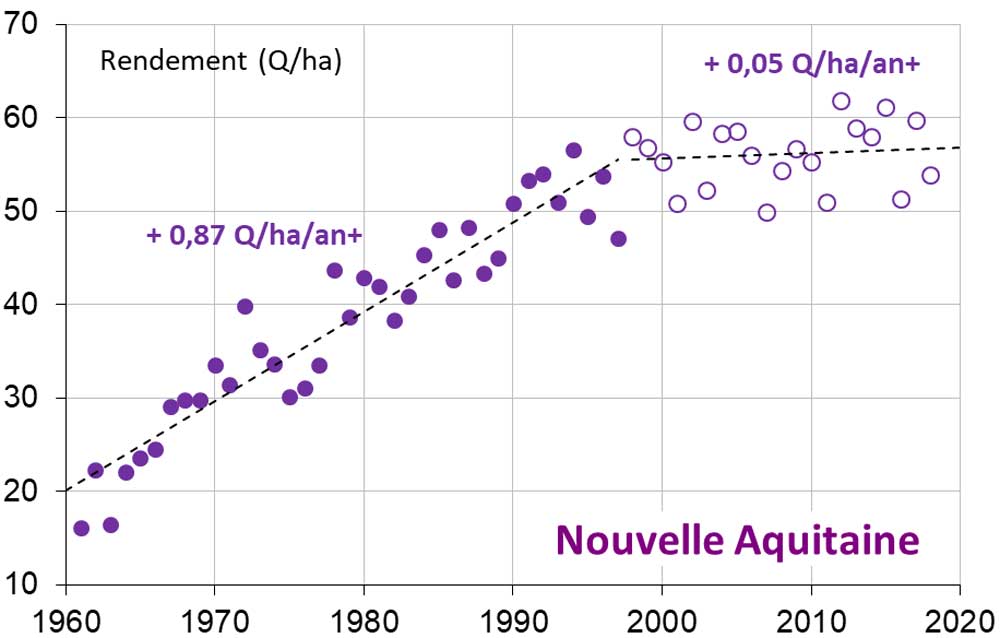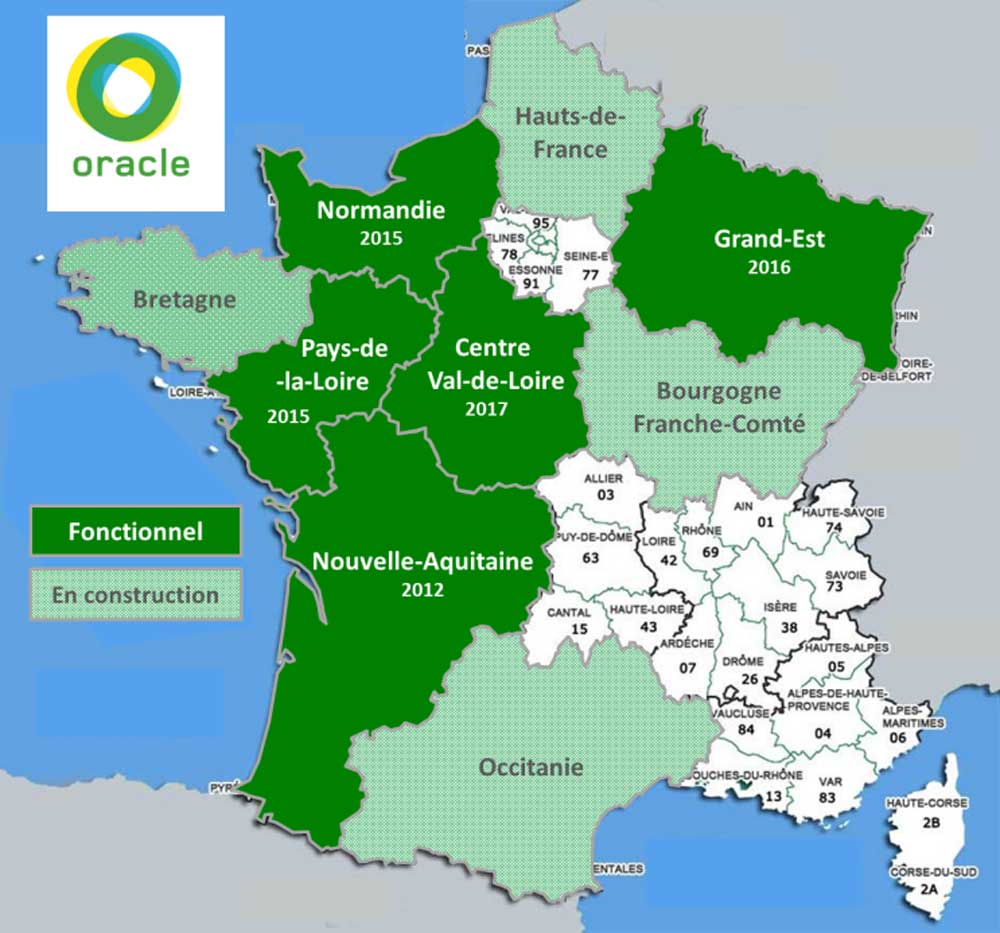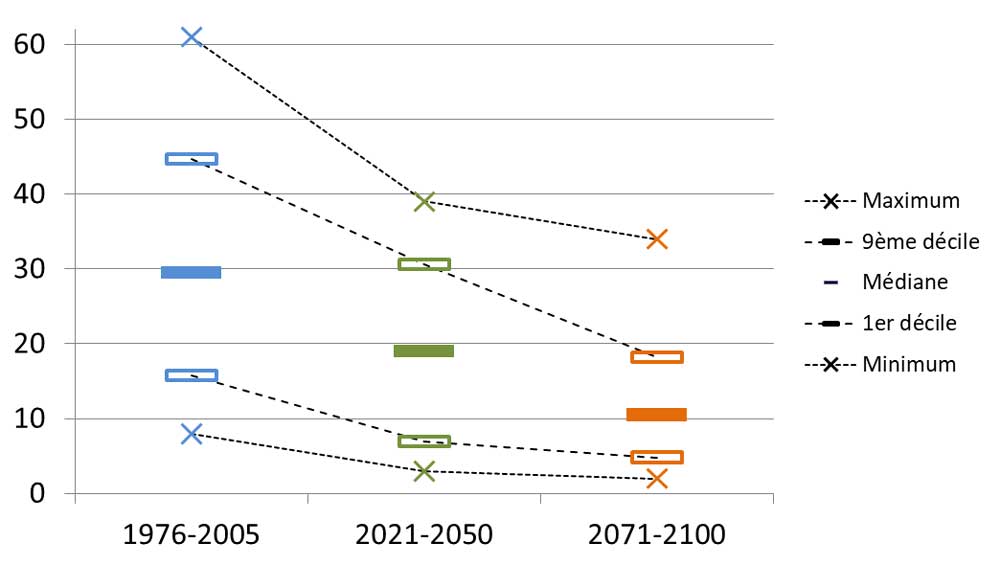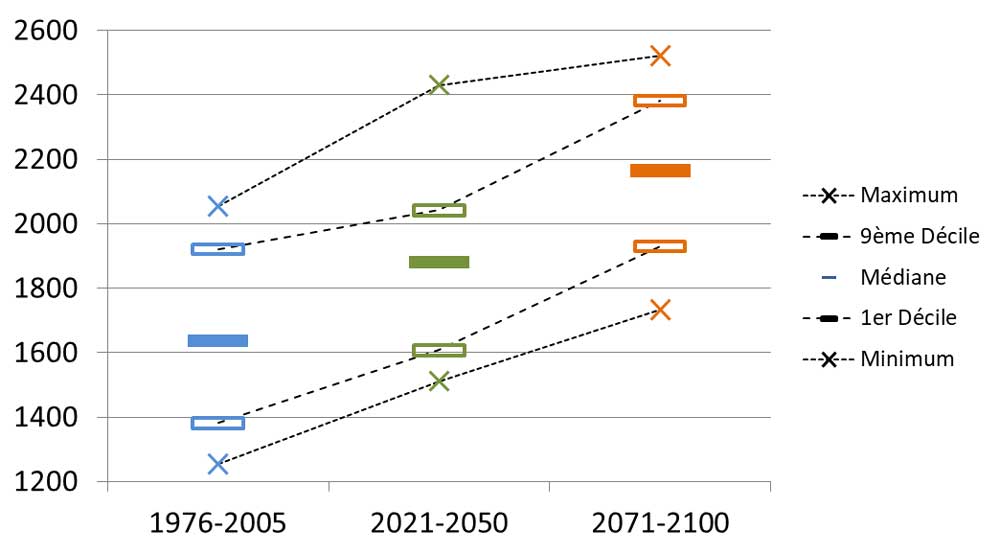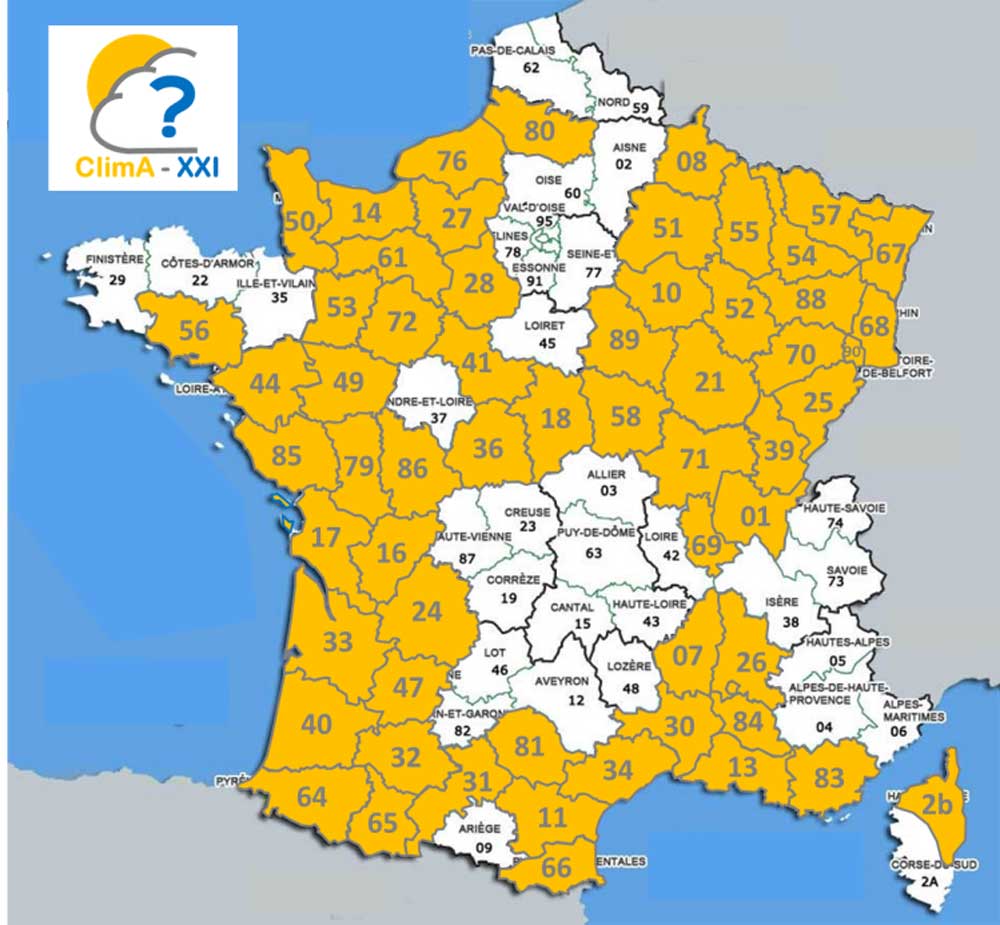Two tools to help farmers understand climate change
By Frédéric Levrault, Expert "Agriculture et changement climatique" – Chambres d’agriculture, France
The recent record for the highest temperature ever recorded in France (46°C recorded in Vérargues on June 28, 2019), or the intensity of the two heat waves observed in June and July 2019 in France, have only strengthened the conviction that agriculture has to be adapted to climate change. However, although the need to adapt French agriculture to climate change is now accepted at the national level, the question remains largely open as to the adaptations to be implemented locally, taking into account the agricultural and climatic context specific to each farm.
It is in order to help each French farmer to better understand how climate change is already affecting and will affect his profession and production, that the French Chambers of Agriculture have already been deploying for several years a system to characterize the local agricultural effects of climate change. This system is made up of two complementary tools, one devoted to observation and the other to forecasting.
Project ORACLE
In french ORACLE is short for Observatoire Régional sur l’Agriculture et le Changement cLimatiquE which means in english Regional Observatory for Agriculture and Climate Change.
A first tool to answer the question: "What has already been observed where I live?"
Entirely dedicated to the observation of past developments, ORACLE shows how climate change has manifested itself in rural areas during the last (several) years, and how it is already affecting agricultural crop production or animal production.
Each ORACLE study is deployed on a regional scale, and organizes the information under 5 categories: climate, agro-climate, agricultural impacts, agricultural adaptations, and agricultural mitigation. Each indicator covers a history of several decades and is presented graphically along with an analysis. This information (several dozen indicators in total) is freely available on the website of the Regional Chamber of Agriculture. An agreement between Météo France and the Chambers of Agriculture governs the acquisition of data on climate and agro-climate.
In each region, the observatory is steered by a regional committee, composed of regional institutions (government services, Regional Council, Météo France, water agencies, agronomic research, higher education institutions for agronomy, technical agricultural institutes, …) under the chairmanship of the Regional Chamber of Agriculture. This committee defines the main orientations of the observatory: new contents, updates, communication, ...), while the operational activities of each ORACLE study is entrusted to a project officer.
Irrespective of the region, the implementation of an ORACLE regional study is based on the voluntary decision of the elected members of the Regional Chamber of Agriculture, according to their own priorities of action. Thus, the deployment of ORACLE studies in France is made without obligation, at the pace desired by the agricultural leaders of the territories concerned. However, all ORACLE studies follow common rules for collecting, analysing and presenting observations. In addition, they share their experience through a national coordination unit called "La Fabrique des ORACLEs".
Project ClimA-XXI
The shortcut means in french Climat & Agriculture au XXIème siècle and translated into English it is Climate and Agriculture in the 21st Century.
It is a second tool to answer the question: "What will happen where I live?"
Entirely devoted to future developments, ClimA-XXI analyses how climate change will evolve in the future in the agricultural production regions, and how it will affect agricultural crop production or animal production.
Each ClimA-XXI study is deployed at the geographic level of a “Department”, because it is at this administrative level that an Agricultural Council in France is organized. ClimA-XXI proposes two categories of indicators: Firstly, climatic indicators that specify the local climatic context in which agricultural production can take place. Secondly, agro-climatic indicators that specify the future feasibility of current or envisaged agricultural production. These two categories of indicators are calculated utilising the national climate services platform "DRIAS – futures of climate", which provides "high resolution" (8 km x 8 km) climate projections over the whole of France. "DRIAS – futures of climate" was jointly developed by Météo France, CERFACS, and l’Institut Pierre-Simon Laplace. Three time horizons are studied: the end of the 20th century (1976-2005), the middle of the 21st century (2021-2050), and the end of the 21st century (2071-2100).
In each Department, the indicators and the sites analysed are defined by the Chamber of Agriculture of the Department. Each year, a study is carried out for about ten Departments, in collaboration with a French school of agricultural engineers. After delivery of the study to the Chamber of Agriculture, agricultural advisers are trained to become autonomous in the use of the tool.
Irrespective of the Department, the implementation of a ClimA-XXI study is based on the voluntary decision of the elected members of the Chamber of Agriculture for the Department, according to their own priorities for action. Thus, as in the previous case, the deployment of ClimA-XXI in France is carried out at the pace desired by the agricultural leaders of the territories concerned. However, all ClimA-XXI studies follow common rules for the collection, analysis and presentation of projections. In addition, they share their experience through a national coordination unit entitled “Le Club ClimA-XXI”.
What can we learn from this experience?
Deployed in just a few years throughout almost entire country of France, these two tools have made a major contribution to raising the awareness of farmers and professional managers on the issue of climate change. Today, they enable agricultural advisors to provide concrete, local responses to the questions raised by farmers in terms of adaptation. They have also shown the need for an effective linkage between agricultural development and climatological research to provide agricultural stakeholders with information they can utilise.
One may be surprised by the speed with which ORACLE and ClimA-XXI studies covered the national territory. This undoubtedly reveals a strong need for understanding and action on the part of farmers and their advisers with regard to climate change. These capacities should soon be reinforced by tools that complement the first two, such as training or the creation of smartphone services.
Will this be enough to meet the formidable challenge that climate change represents for French agriculture? The future will tell......
As an independent advisor for farm and farmland acquisitions in Canada, Mark Parnell often travels to European countries and agricultural exhibitions. Here he has the opportunity to see and to compare different farming methods. In his opinion, french research on the impact of climate change on agriculture is very progressive.
Read his article on "Climate Change Support for Agriculture: Is France a Step Ahead?" on www.dlg.org/en/agriculture/topics/dlg-agrifuture-magazine/knowledge-skills/climate-change/



